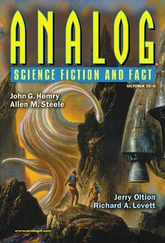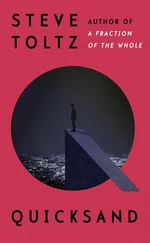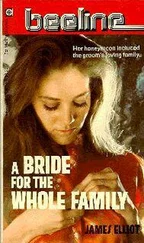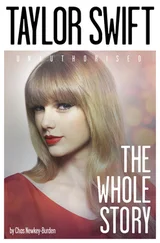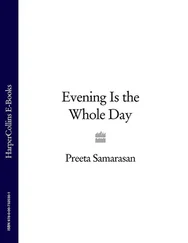I had to say this whole speech with my hand over my mother’s mouth, and she was biting me viciously. She’d really gone crazy. “Shoot to kill!” she screamed when I took my hand away. “Aren’t you his mother?” they asked, confused. They couldn’t grasp the meaning of this evil-twin business.
Holding my brother’s fate in the balance, the policemen conferred among themselves, whispering malignantly, almost violently.
“OK, you can go in,” they said to me, and unfortunately, they let my mother in too.
The bowling alley was on the second floor. There was a policeman on every step of the concrete staircase, eyes glowering. I thought: These men are unspeakably dangerous, like understudies waiting to be called to be the star, their raging egos determined not to be undone by performance anxiety. On the way up, a detective filled us in. As far as he knew, Terry had gone into the alley while Kevin Hardy, the three-time world champion, was rolling a few. There were unsubstantiated rumors that during competition Hardy had paid someone behind the pins to take out those he missed with the end of a broomstick. Because the accusations were shaky, Terry hadn’t gone in there to kill him, only to snap his bowling fingers, including the pinkie, just in case he was one of those rare bowlers who used the pinkie for extra spin. Afterward, Terry was tempted by a pair of pretty girls working behind the counter. The groupie phenomenon, the undeniable perk of celebrity, had always been too much for Terry to resist. Unfortunately, once he’d made his choice between the two girls, the jilted one called the police almost immediately, so by the time Terry had broken Kevin’s hand, had sex with the groupie, and was ready to leave, he was already trapped.
Now Terry was kneeling down in the middle of the last lane, gun in his hand, using four hostages as a human shield. Police were positioned at every point of the bowling alley; you could even see the black nozzle of a sniper’s rifle poking out between the pins. They had him covered, and I knew instantly that if they could take the shot, they would, but he was well hidden behind a row of faces contorted in terror.
“You!” my mother shouted. The police held her back. They didn’t trust Terry not to shoot his own mother, especially given her crazy story that he was not her real son but some insidious clone.
“Terry,” I shouted, “it’s me, Marty.” I didn’t get the chance to say anything else before my mother started up.
“Who are you?” she cried.
“Mum? Shit, Marty, get her out of here, will you?”
He was right, of course. When a man is staging his final bloody showdown, he doesn’t want his mother loitering around.
I tried persuading her to leave, but she wouldn’t hear of it.
“Stop cowering behind those poor people, you impostor!” she screamed.
“Mum, get out of here!” Terry shouted.
“Don’t call me Mum! I don’t know who you are or how you got my son’s face, but you can’t fool me!”
“Terry, give yourself up!” I shouted.
“Why?”
“They’ll kill you!”
“And? Look, mate, the only thing that’s bugging me is that this whole scene is getting a bit boring. Hang on a sec.”
There was frantic whispering over at the human shield. Suddenly they started to move. They edged to the bowling ball racks, then back to the lane. Then it went! A ball flew down the center of the lane. Terry was bowling! The policemen’s eyes watched the ball fly toward the pins. There was a profound silence that verged on the religious. A strike! Terry had done it! He took out all ten pins! The crowd seemed to shout with one voice, reminding me how man is often stupid alone, but in packs he is absolutely cretinous. They might have been police at the dénouement of a long manhunt, but they were also sport-loving Australians- and nothing starts the heart beating faster than a victory, no matter how bloodthirsty the victor.
At the moment the ball hit the pins, a bullet hit Terry. That ball was Terry’s ploy to make a run for it, but not all police are that gullible or even like bowling.
He lay on the lane, smeared in his own blood, shouting, “My ankle! Again in the ankle! The exact same spot, you mongrels! That’s never gonna heal!” and he lay there while overcome by forty policemen all competing to be the one to walk him outside in the bright flashing glare of the paparazzi, to get their little dose of immortality.
I’m no expert on linguistics or the etymology of words, so I have no idea if the word “banana” really was the best-sounding collection of syllables around to describe a long yellow arc-shaped fruit, but I can say that whoever coined the phrase “media circus” really knew what he was talking about. There’s simply no better description of a bunch of journalists clamoring for quotes and photographs, although “media primates,” “media rioting mob,” or “explosion of a media supernova” might do just as well. Outside the courthouse where Terry’s trial was to take place, there were hundreds of them- sweaty-faced leering men and women of the press, pushing and elbowing and jeering and by their appalling behavior generally degrading the human race in the name of public interest.
Inside, the courtroom was standing room only. As Terry denied none of the charges, it was more a process than a trial, and his court-appointed barrister was there to navigate Terry through the bureaucracy of the system rather than aid him in an actual defense. Terry had no defense. He admitted everything; he had to- his infamy was tied up in it. To deny what he had been trying to do would have been like the crusaders explaining their journey into the Islamic world by saying they were just out for a long walk.
Terry sat defiantly next to his lawyer, and when the judge began his deliberations, he rubbed his hands together as though he were about to be sentenced to two scoops of vanilla ice cream. Speaking slowly and solemnly, like a seasoned actor getting his one and only chance to deliver Hamlet’s soliloquy, the judge projected his voice to the back of the courtroom with the words, “I sentence you to life imprisonment.” It was a bravura performance. Everyone let out the typical murmur that follows sentencing, though it was just for show. No one was surprised. There was no other way it could have gone down. What did come as a surprise, however- though you’d think by now I would’ve been accustomed to the taste of ironies squeezed from the cosmic juicer- is that the prison Terry was sentenced to was the one in our hometown.
That’s right.
Our prison. In our town.
Automatically, I looked to my father. Terry was sentenced to spend the remainder of his life in the prison his father had built, the prison that lay 1½ miles from our front door.
***
With their prodigal son home but not home, detained in a building that we could see from both the front veranda and the kitchen window, the sweaty grip that my mother and father had on their sanity began to loosen at an alarming rate. While there was some comfort having him safe from eager police snipers, to have him so tantalizingly out of reach was a torment that made it impossible to tell which of my parents had drifted further from light and life; they were dissolving so fast, each in his or her own sad way, you’d have thought it was a competition. It was like living with two ghosts who had recently accepted their death, who had given up trying to blend with the living. They had finally recognized their transparency for what it was.
With a curious, crazed look of joy on her face, my mother took up a new project: she framed every photograph of Terry and me as children and nailed them to every available wall space in the house. There was not a photo in the house of us over the age of thirteen, as if by growing up we had betrayed her. And I can see my father now too, sitting on the far right corner of the veranda, which allowed a view of the prison unobscured by treetops, binoculars pressed up against his eyeballs, trying to catch a glimpse of his son. He spent so many hours a day peering through those binoculars that when he finally put them down to rest, his eyes strained to see us. Sometimes he’d shout, “There he is!” I’d come running out to see, but he always refused me permission to use his precious binoculars. “You’ve done enough damage,” he’d say inexplicably, as if my gaze were like that of an ugly Greek witch. After a while I stopped asking, and when I heard my father shout, “There he is again! He’s in the yard! He’s telling a joke to a group of inmates! They’re laughing! He looks like he’s having a ball!” I didn’t move a muscle. Of course, I could’ve gotten my own binoculars, but I didn’t dare. In truth, I didn’t think he could see anything at all.
Читать дальше

